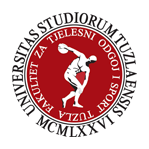THE EFFECT OF PLYOMETRIC TRAINING ON HEMATOLOGICAL PARAMETERS IN ALPINE SKIERS
Keywords:
xercise, Oxygen carriage capacity, Blood parametersAbstract
The aim of this study was to determine and evaluation chronic effects of plyometric training on hematological parameters of the Turkish National Alpine Ski Team athletes during 12-week preparation period. In the study 12 sportsmen volunteers participated whose mean age was 17.50 years. Twelve weeks plyometric training protocol performed to participants. The training program was applied for twelve weeks and five days a week in total 60 training unit. As the program preceded the intensity and content of training increased. Blood samples were taken before and after training program. The Red blood cell (RBC), white blood cell (WBC), Granulocyte (GR), hematocrit (HCT), Hemoglobin (HGB), Mean Corpuscular Volume (MCV), Mean Corpuscular Hemoglobin (MCH), Mean Corpuscular Hemoglobin Concentration (MCHC) measurement were analyzed blood samples with automatic hematological analyzer (Toshiba Accute PPS TBA-40FR). Wilcoxon Signed Rank test was used in order to compare statistical values of before and after exercise and significance level alpha was set 0,05. Before and after training program values were compared for RBC, WBC, GR, MCV, MCH, MCHC and no significant changes have been observed for these values. However there were significant (p>0.05) increase of HCT and HGB values. We were concluded that as a result of the study twelve week plyometric training program increased the red blood cells and hemoglobin levels and as a result improved oxygen carriage capacity of the Turkish National Alpine Ski Team athletes..
Downloads
Downloads
Published
How to Cite
Issue
Section
License

This work is licensed under a Creative Commons Attribution-NonCommercial-NoDerivatives 4.0 International License.






